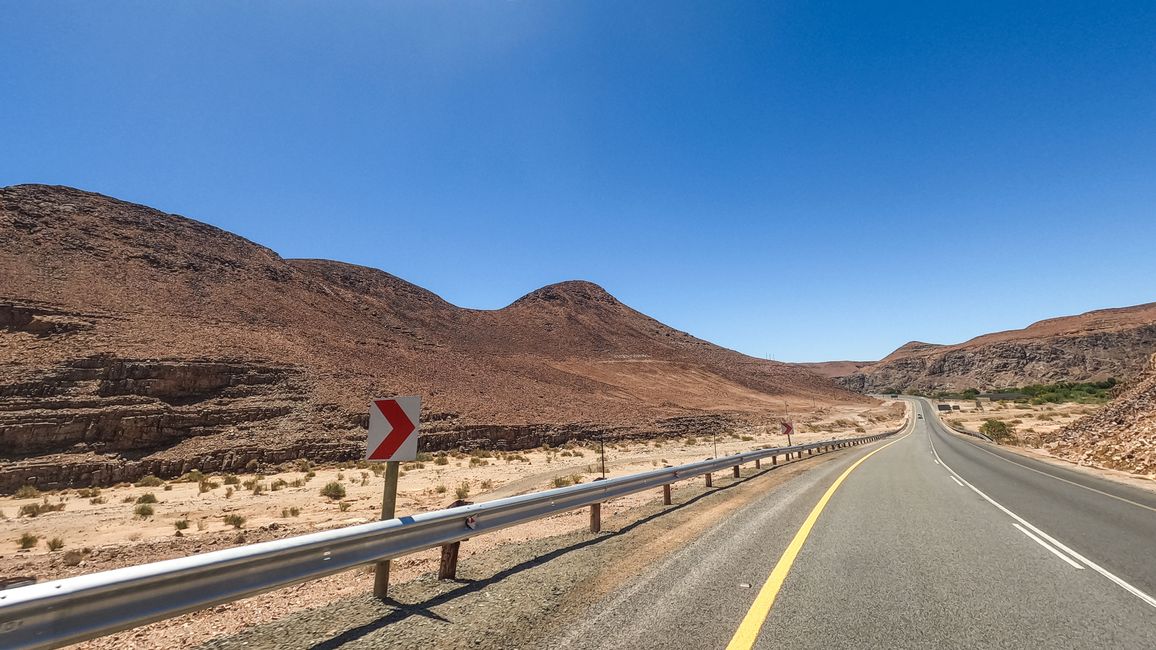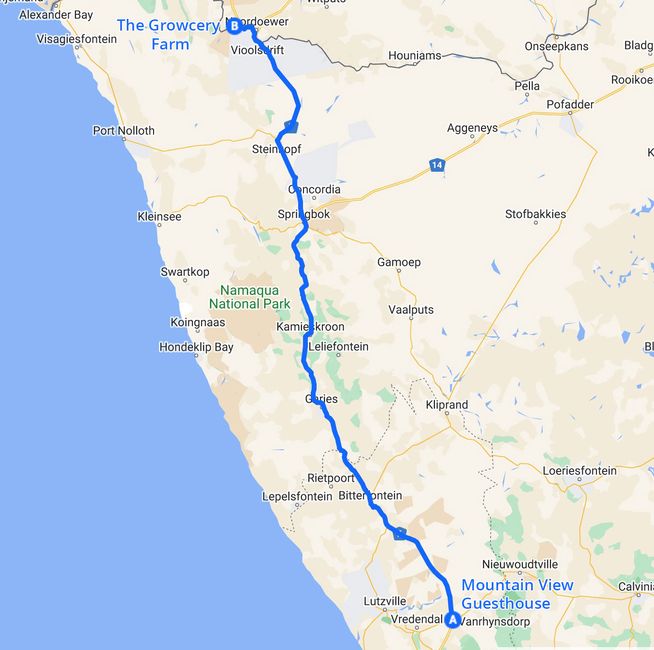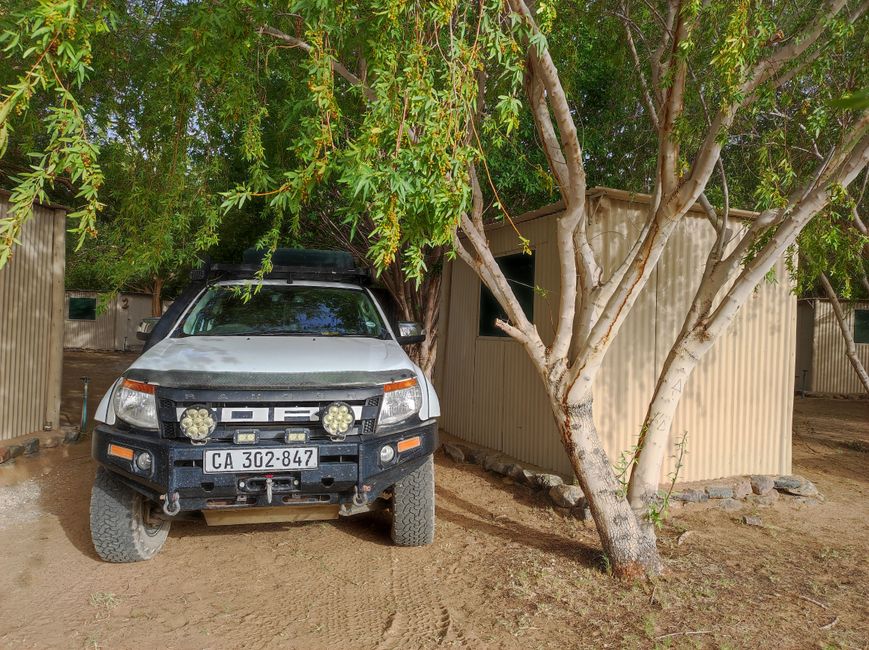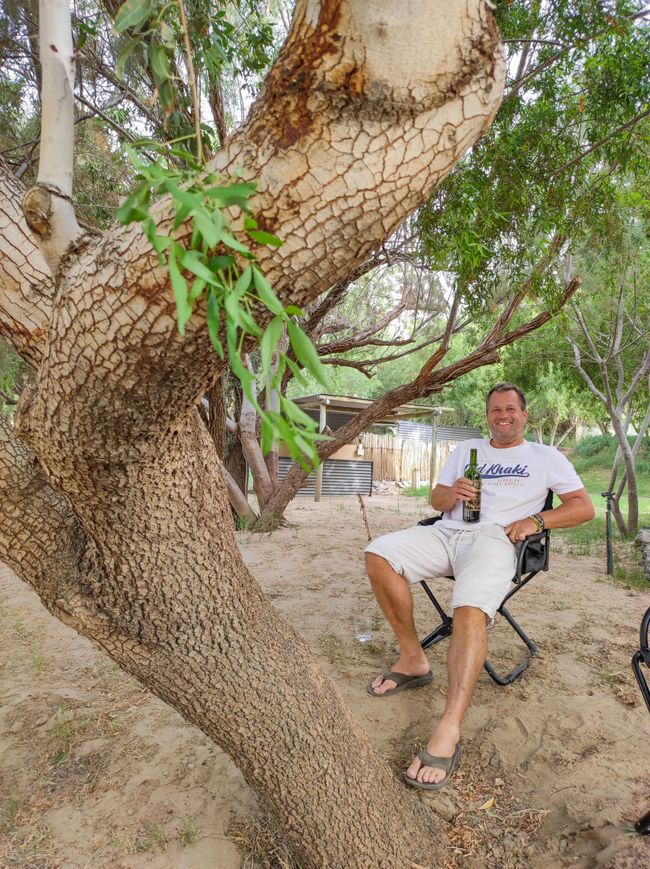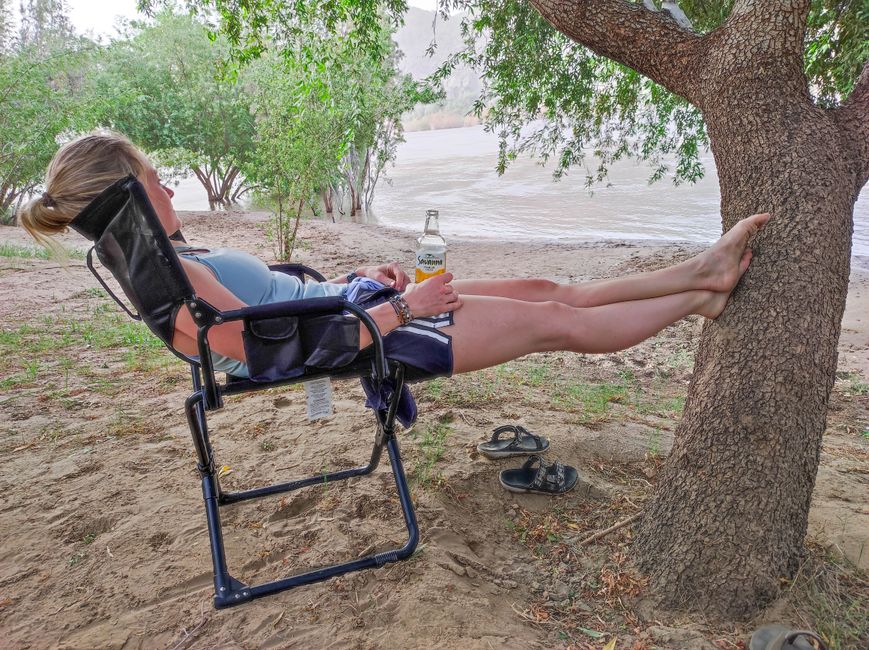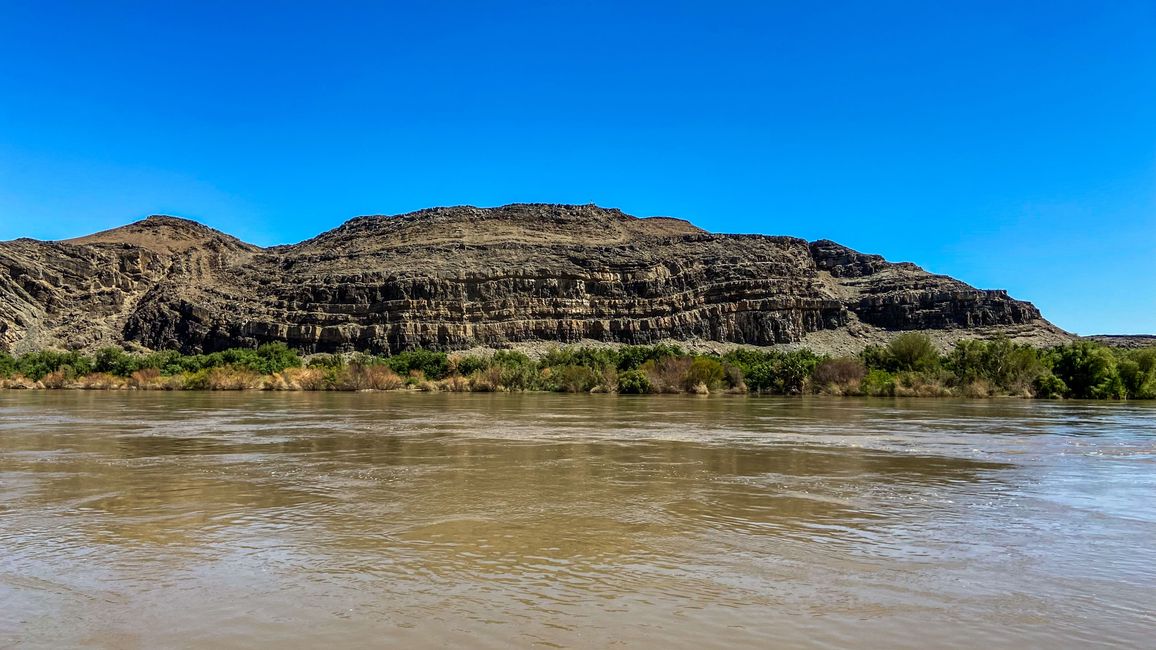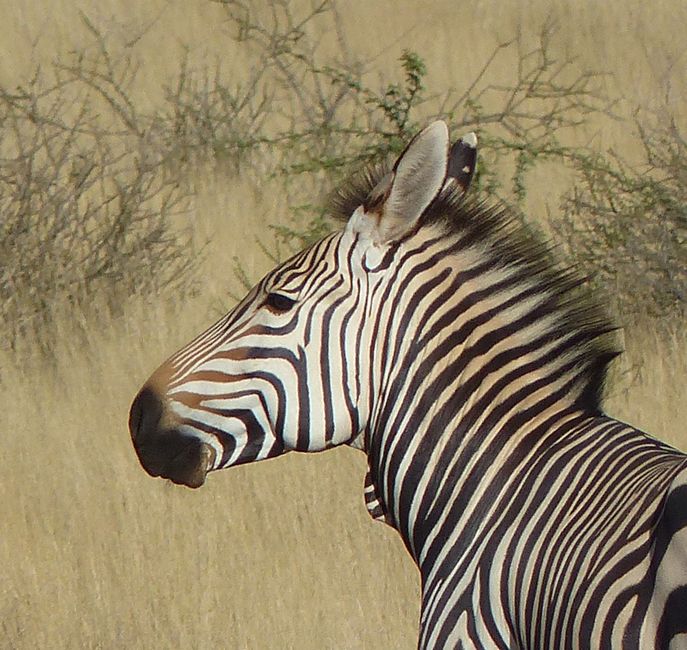
Namibia 2023
vakantio.de/namibia23
Border crossing
Ebimisami: 14.02.2023
Abonnez-vous na Bulletin ya Sango
Day 2, 29.12.22, from Vanrynsdorp to Growcery Camp (Orange River)
After a coffee on the veranda and a chat with our host, Cindy sets about fixing her puncture. Although everything was fine the previous day, it turned out in the morning that the front tire had run out of air. Apparently, it was not accustomed to the South African gravel surface yet and was a bit reluctant. But Cindy quickly took care of this and professionally repaired the tube.
After quickly refueling (a rule on such a tour, especially later in Namibia: always refuel when a gas station is in sight) we continue to the Growcery Camp, our next stop on the Orange River, where our rafting tour will start the next day. The view of the beautiful Namaqualand landscape makes the journey shorter.
Namaqualand means "Land of the Nama Khoe people" and is a dry region of Namibia and South Africa that stretches for over 1,000 km along the west coast and covers a total area of 440,000 km2. It is divided into two parts by the lower Orange River - Little Namaqualand in the south and Great Namaqualand in the north.
Little Namaqualand is located in the Namakwa District Municipality and is part of the Northern Cape Province in South Africa. It is geographically the largest district in the country, covering an area of 26,836 km2. The Succulent Karoo semi-desert region experiences hot summers, sparse rainfall, and cold winters.
The Great Namaqualand in the Karas region of Namibia is sparsely populated by the Namaqua, a Khoikhoi people who traditionally inhabited the Namaqualand region.
We decide to make a short coffee stop in Springbok, but change our minds as this place doesn't really invite us. So we continue without coffee and arrive at the South African/Namibian border post, the Vioolsdrift Border Post on the Orange River. However, we stay on the South African side of the river and follow it to our camp. The Growcery Camp is located in Richtersveld, in the Northern Cape of South Africa. The camp is situated on the banks of the Orange River, 22 km from the border post between Namibia and South Africa.
We are greeted by Anton, who explains everything to us and shows us around. We also meet Craig, our guide for the Orange River rafting tour, who invites us to a briefing in the evening. One question remained: whether we need to take our passports on the tour. A question with consequences: Anton replied that we will be picked up on the Namibian side after 3 days and therefore we must have our passports with the entry stamp... Wait, entry stamp? Yes, the entry stamp that you get at the border before driving to the camp. Did they not explain the procedure to us beforehand? With a slightly horrified expression, we answer that we did not receive this memo, immediately return to the border, and begin our "back and forth" maneuver:
Arriving at the border crossing, we are given a sheet of paper with the number of people stated. It later turns out that this is called a "running sheet." Completely confident, we continue past a building to the South African border station. The friendly border officers write down our license plate, we show our passports, hand over the sheet of paper only to receive it back immediately with the question of why there are no immigration stamps on it. He surely has seen our bewildered looks before and politely explains that we need to go back to the building, to Office 1 "Immigration," where our passports will be checked.
No problem, we think, reverse and drive to the building. At Immigration, it turns out that the new German passports, in particular, are not readable (at least not at this border) and the officer manually inputs all the information with a slight sigh. After about 10 minutes, everything is done, stamps on the sheet of paper, and back to the border crossing. Is everything done? Think again! We are kindly reminded that a second stamp from the police should be on the lower side of the sheet of paper, which we get from Office 3 "Police." Since we are now skilled, we skillfully reverse, drive to Office 3, get the stamp, and come back to the border crossing for the third time, where we are cheerfully waved through after handing over the sheet of paper.
We then cross the river to the Namibian side of the border crossing. Although we have already left South Africa, we have not yet entered Namibia. There, we are stopped by a friendly young man who explains that due to a foot and mouth disease, our tires and feet need to be sprayed before we can enter. We explain to him that we are not entering Namibia directly, but will immediately turn back. He may not have understood, but he let us proceed.
By now we know that these buildings before the actual crossing are not just a facade, so we immediately go to the first one to show our passports and fill out the entry form. This time without a running sheet. We explain that we are coming from Umkuhlu (Orange River Rafting) and only need the stamp, which they promptly put in our passports without any problems.
Turned around again, we cross the river back to the South African border, where we are happily given another sheet of paper at the first building. We explain that we actually don't really need to re-enter but just physically go back to then return officially in three days. Of course, no problem, we are just asked to continue driving, which I immediately do, unfortunately in the wrong lane, the truck lane. After a loud shout and vigorous waving, I promptly react, take the correct lane, and almost miss the stop sign where I should have handed over the sheet of paper. Now that it is no longer in our possession, we return to the camp two hours later.
Relieved to have entered Namibia, we sit by the river on the South African side with a beer (no one needs to understand) and watch the rushing Orange River, which will be our home for the next three days. In the evening, we get to know our fellow travelers and our guides better around a campfire. There is no official briefing, but it will take place the next morning.
Another exciting day comes to an end, and we retreat to our small shack for the night... which is then rudely interrupted. But more about that next day.
Abonnez-vous na Bulletin ya Sango
Eyano
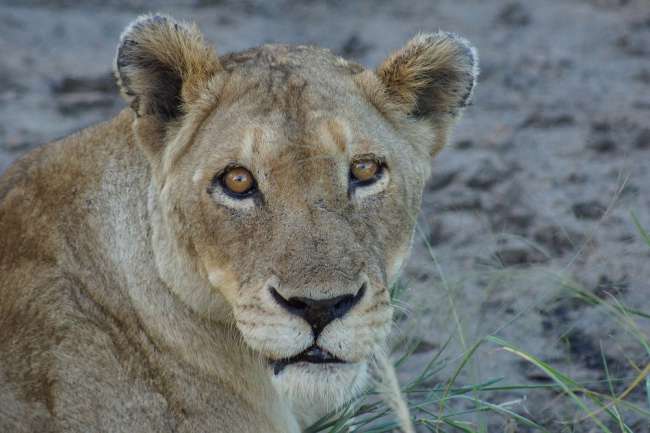
Lapolo ya mobembo Afrika ya Sudi

